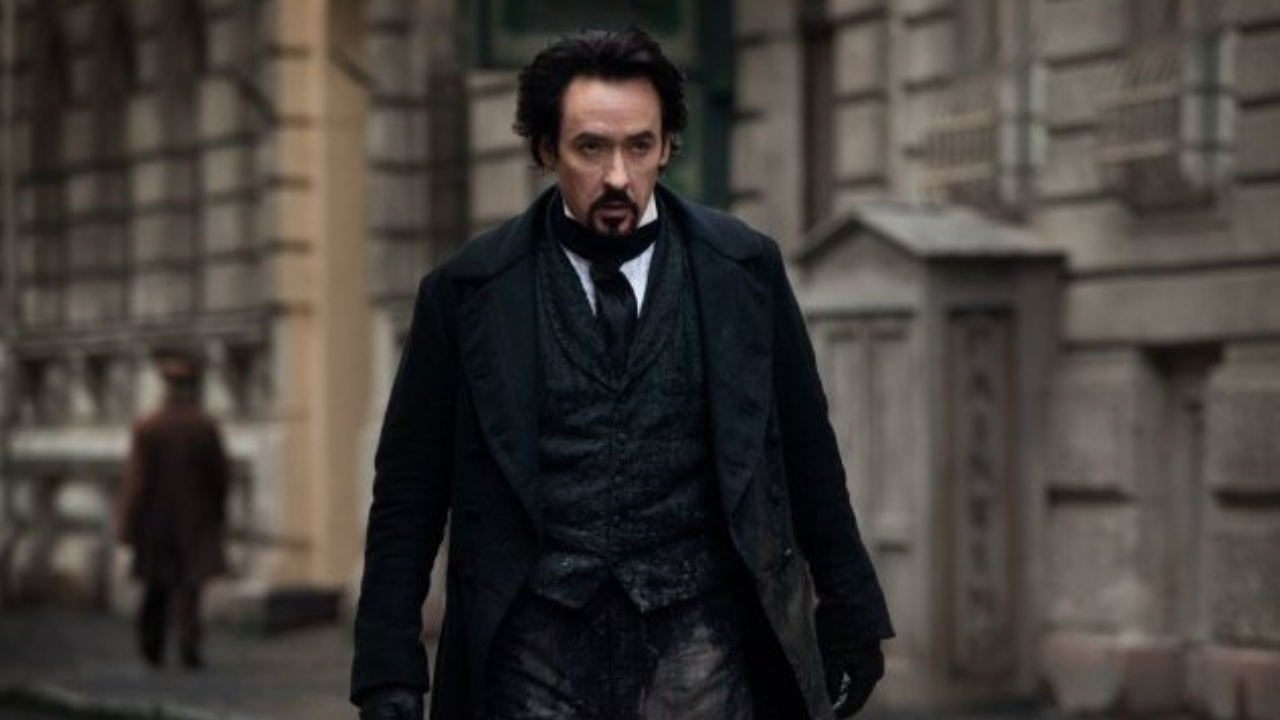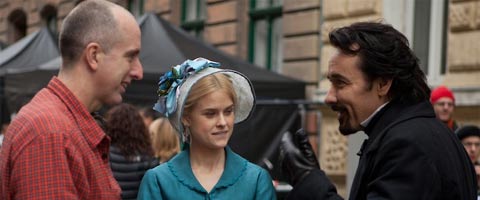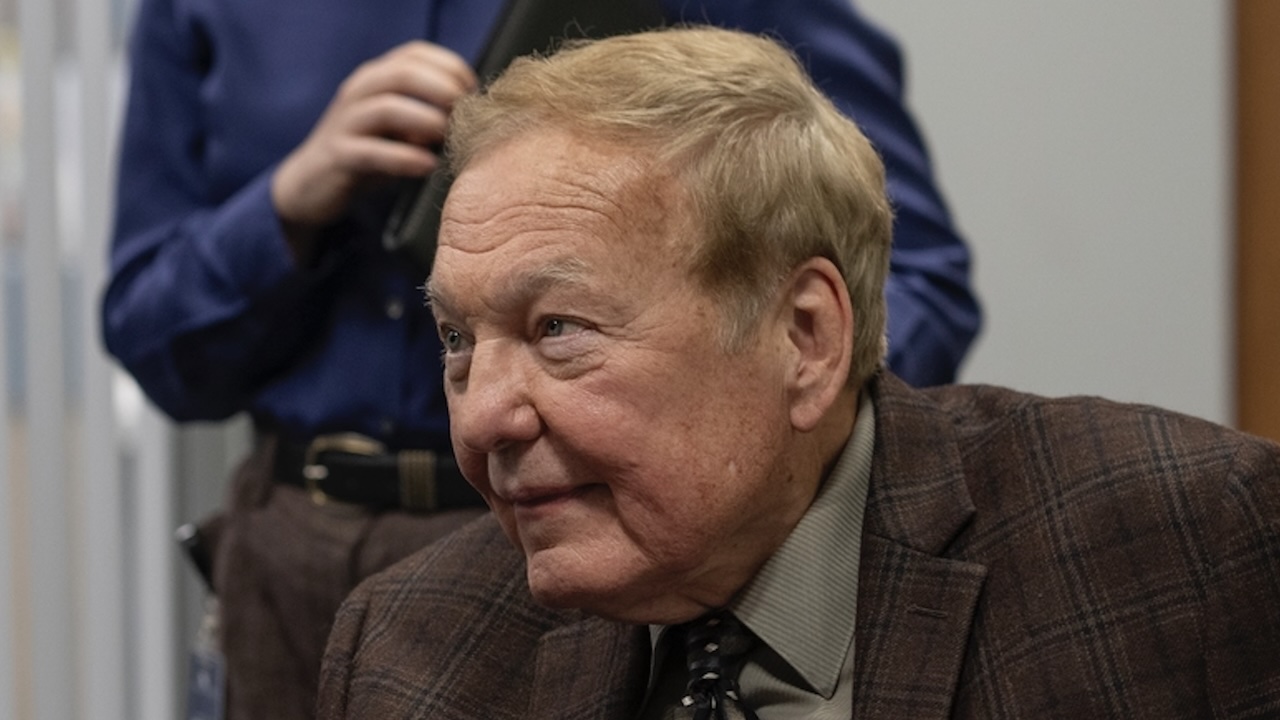The Raven Director James McTeigue On The Darkness Of Edgar Allan Poe

Even by writer standards, the life of Edgar Allan Poe was a life of trouble and woe. At just about every turn in his life he had to deal with conflict and struggle, be it his battle with substance abuse to his love life, which involved marrying his 13-year-old cousin and then losing her to tuberculosis. He was a troubled man who let his dark world enter his writing, and that was just perfect for director James McTeigue to look back on while helming The Raven.
I recently had the chance to sit down one-on-one with the filmmaker to talk about his new project, and in addition to speaking about the research discussed why John Cusack was the perfect man to play Poe, exploring the darker sides of the character, and creating a collaborative environment on set. Check it out!
How did you know that John Cusack was the right actor to play Edgar Allan Poe?
I guess with John and the Poe character itself, I thought to make the Poe character believable and work you’d need someone, an actor, with great empathy so you could find your way into Poe’s darkness, if you like. And I’ve seen a bunch of John’s movies that are nothing like that, but some that were like that, and I thought some of the movies that I thought he was best in had a slight darkness to them, whether it was 1408 or The Grifters or whether it was High Fidelity. And then when I met John I could just tell that he could be that guy. And he was really into it too. I think he just came with Poe almost fully formed, whether he knew about it before or if he really loved the script. We just had a very open discussion about it and it worked for me, “Okay, that’s the guy who is going to play Poe.”
Because of that empathy aspect, do you feel you were able to push the darker sides of the character and story a bit further?
I think so. John, for a lot of people, he’s always been there, right? He’s that guy who has always been there. And that’s nice – and he’s always been there because he’s a great actor. If you’re not a great actor then you fall by the wayside pretty quick. For John to have a career as long as he’s had is extraordinary. And yeah, you can push it, but you need the actor to go there too, and John was really willing to go there, willing to explore the dark crevasses of Poe. He had these great collages in his trailer that were all these kind of mad women and birds and pictures of Poe, and all these kind of disparate images that sort of looked like John’s head had exploded out on to these montages, and I was like, “He’s into it! That’s fantastic!”
As a director, how collaborative do you let the on-set environment be?
Your Daily Blend of Entertainment News
I’m a fan of the script, you know, and, obviously, if you have a good script then that’s a good jumping off point. I’m not someone who likes to improvise on set because I don’t think that really works – I mean, it works for some other directors, but not for me. I think the thing that I like to do is, and the system that I was doing with John was that we would continuously roll. So you would go “Action” and do a take, and then you’d go, “Another one! Everyone reset! Reset!” and you would do it again. If I wanted, John would always give me something different – a nuanced performance or a different way of seeing it. So I like to work like that and John comes to the set with ideas and he likes to talk about it, I think that’s all great. Film is a collaboration, that’s what it is, and I think you have to guide the ship, but you also have to be open. If the director of photography comes to you with an idea, I don’t think you can just shut it down because you have a fixed way of doing it. You go, “Well, he’s thinking about it, so I should think about it too.” I love being collaborative.

When you’re filming continuously as you mentioned, how do you keep the actors in the moment and make sure that they’re acting instead of just reading?
I think it’s about, like we were just talking about, being receptive to things they want to do. I think it’s also about pushing them. “Okay, you just did it like this, but think about this for a minute, think of the place that this guy is in. I’m a big one for reminding the actors of where they’ve just come from and where they’re going to next, because then it gives them context where their character can be. Because sometimes a lot of actors are about the scene, but ultimately I have to have the breadth of the film in my grasp because later on when I’m in editorial or post-production, if they’ve just done a great moment in the scene, but it doesn’t speak to anything else in the film, then I’m really in trouble [laughs]. I keep them in the moment depending on what’s going on.
Were you a fan of Poe’s work before signing on to this project?
It’s hard not to be a fan of Poe, even if you’re not a scholar of Poe, I don’t think that there are too many people who don’t know who Poe is or what his work is. So that’s nice, in some ways, it’s what you want for a film. Something that’s pre-branded – that’s why there’s so many superhero movies or sequels. Poe, people know who Poe is and John used to talk about, “Wow, how come no one else has ever made a film just about Poe and his stories? That should have happened already and I’m happy to be making it!” Even though it’s complete fiction and we’re magpie-ing parts of his life here and magpie-ing parts of his stories and then putting him in the middle of one of his own stories. It was just a fun concept to do, and everyone was saying it was some diligent biopic, that wasn’t the place we were going for. We were going for, hopefully, this fantastic kind of melding of all those elements of his lifestyle, so if you go and see it, “Wow, Poe is an interesting character, maybe I’ll go and read one of his biographies” or “Maybe I’ll go and read one of his stories.” That kind of realm is what we were going for.
It’s not a biopic, but was it still research intensive on your part?
Yeah, and more so because it was fun. He was mad! The good mad. You know what I mean? He was a philanderer, an alcoholic and an opium addict, and a critic and a writer. You got all these amazing facets, so that was fun to read about. He had this completely troubled life where he married his 13-year-old cousin and he lived with his mother-in-law, his adopted father hated him, and you just go “Wow.” Once you start reading him you go, “Wow, that’s fantastic,” and then once you read about all that stuff that happened in his life and then you read the stories you go, “Oh, now that part relates to that,” and so that part was fun, doing the crazy Beautiful Mind connective tissue dots and you wind up with this great web of Poe. But yeah, it was fun to do that.

Eric Eisenberg is the Assistant Managing Editor at CinemaBlend. After graduating Boston University and earning a bachelor’s degree in journalism, he took a part-time job as a staff writer for CinemaBlend, and after six months was offered the opportunity to move to Los Angeles and take on a newly created West Coast Editor position. Over a decade later, he's continuing to advance his interests and expertise. In addition to conducting filmmaker interviews and contributing to the news and feature content of the site, Eric also oversees the Movie Reviews section, writes the the weekend box office report (published Sundays), and is the site's resident Stephen King expert. He has two King-related columns.
